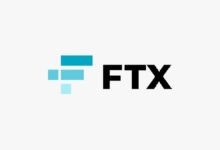FTX Money Backed U.S. Lawmakers With Future of Crypto in Their Hands

Many members of Congress with the biggest influence over coming U.S. cryptocurrency legislation received direct contributions from top executives of FTX, leaving them with a complicated political relationship with the crypto industry.
More than one in three of the lawmakers on the Senate Banking Committee, House Financial Services Committee and the Senate and House agriculture panels took campaign money from former CEO Sam Bankman-Fried and other senior executives of the disgraced crypto giant. Those on the agriculture committees – which have oversight of derivative trading – were particular targets of FTX management.
As the House Agriculture Committee begins considering how the Commodity Futures Trading Commission (CFTC) should oversee digital assets, two of its most important members are contending with FTX money. The campaign of Chairman Glenn Thompson (R-Pa.) took donations from Bankman-Fried and Ryan Salame, who was co-CEO of FTX Digital Markets, and the new chairman of the subcommittee focusing on crypto, Rep. Dusty Johnson (R-S.D.) accepted a contribution from Salame.
“The FTX debacle proves we must have more robust regulation over the crypto industry,” Johnson said in a statement. “No degree of political involvement by FTX executives can obscure that plain fact.”
The lawmakers who received FTX money in the four key committees – 38% of the members, according to Federal Election Commission records – have been under pressure to answer what they’re doing with the contributions, and one in 10 told CoinDesk they chose to donate the money to charity. That decision may have backfired with the recent effort from FTX’s bankruptcy team to claw back those donations, directly asking the candidates to return the funds.
Nearly two thirds of the members of the Senate Agriculture committee took FTX cash, including Sen. Debbie Stabenow (D-Mich.), the panel’s chairwoman, and its ranking Republican, Sen. John Boozeman (R-Ark.). Last year, that panel was in the crypto industry’s spotlight because the two lawmakers pushed a bill to establish rules of the road for digital assets in the U.S., including giving the CFTC authority over trading of non-security tokens, such as bitcoin.
They’re expected to give it another go in this congressional session, but the previous legislation – the Digital Commodities Consumer Protection Act – was championed by Bankman-Fried, so will have the fallen CEO’s shadow to contend with.
Other legislative efforts also made progress last year, and the oversight of stablecoins is widely seen as a regulatory need that could be solved with a relatively narrow bill. The House Financial Services Committee’s top members worked on one in 2022, and new Chairman Patrick McHenry (R-N.C.) has indicated crypto remains a priority.
The Senate Banking Committee is also focused on digital assets, and has scheduled a Valentine’s Day hearing examining the “crypto crash.”
Seven of the 23 members of Senate Banking accepted money from FTX executives, including Sen. Tim Scott (R-S.C.), the panel’s top Republican. If crypto legislation happens this year, there will likely have to be a meeting of the minds between Scott and the committee’s crypto-skeptic chairman, Sherrod Brown (D-Ohio).
Learn more about Consensus 2023, CoinDesk’s longest-running and most influential event that brings together all sides of crypto, blockchain and Web3. Head to consensus.coindesk.com to register and buy your pass now.






 Bitcoin
Bitcoin  Ethereum
Ethereum  Tether
Tether  USDC
USDC  TRON
TRON  Dogecoin
Dogecoin  Cardano
Cardano  Bitcoin Cash
Bitcoin Cash  Chainlink
Chainlink  LEO Token
LEO Token  Monero
Monero  Stellar
Stellar  Zcash
Zcash  Litecoin
Litecoin  Hedera
Hedera  Dai
Dai  Cronos
Cronos  OKB
OKB  Tether Gold
Tether Gold  Ethereum Classic
Ethereum Classic  KuCoin
KuCoin  Gate
Gate  Algorand
Algorand  Cosmos Hub
Cosmos Hub  VeChain
VeChain  Dash
Dash  TrueUSD
TrueUSD  Tezos
Tezos  Stacks
Stacks  IOTA
IOTA  Basic Attention
Basic Attention  Theta Network
Theta Network  Decred
Decred  NEO
NEO  Synthetix
Synthetix  Qtum
Qtum  Ravencoin
Ravencoin  0x Protocol
0x Protocol  DigiByte
DigiByte  Zilliqa
Zilliqa  Nano
Nano  Numeraire
Numeraire  Siacoin
Siacoin  Waves
Waves  BUSD
BUSD  Ontology
Ontology  Status
Status  Enjin Coin
Enjin Coin  Pax Dollar
Pax Dollar  Hive
Hive  Lisk
Lisk  Steem
Steem  Huobi
Huobi  NEM
NEM  OMG Network
OMG Network  Bitcoin Gold
Bitcoin Gold  Augur
Augur  Ren
Ren  HUSD
HUSD